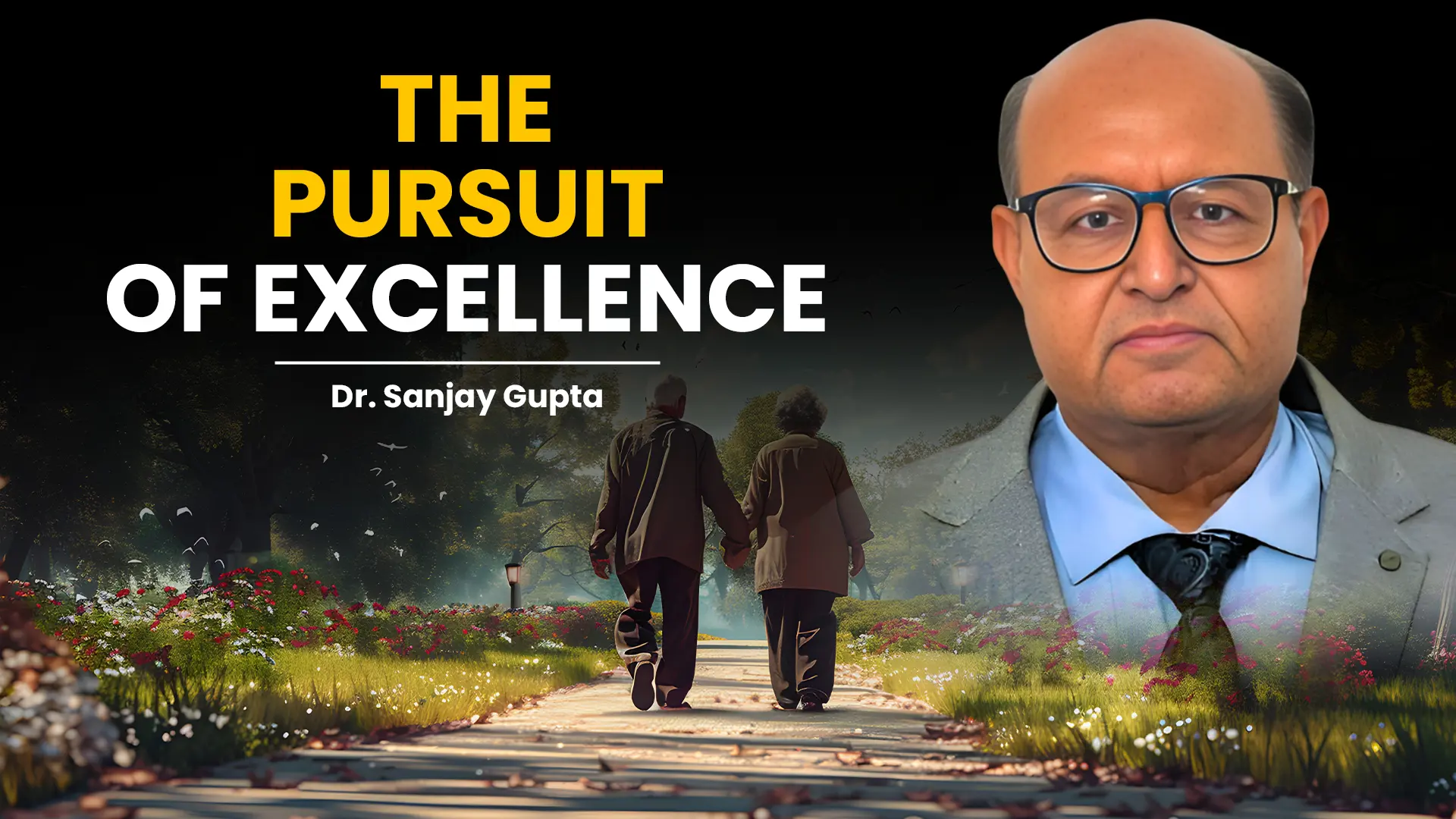

"Parents are the guiding stars who illuminate our path, even when they are no longer with us.”
DEDICATION
This Biography is profoundly dedicated to Dr. Sanjay Gupta’sGuruji and the Goddess MahaKali. This biography is also dedicated with love and gratitude to the cherished memory of Dr. Sanjay Gupta’s beloved parents, Late Shri B.K. Gupta and Late Smt. Bimla Gupta. Their unwavering support, sacrifices, and values laid the foundation for his journey. His father’s discipline, integrity, and dedication to public service inspired him to pursue excellence, while his mother’s warmth, wisdom, and resilience nurtured his spirit and gave him strength through life’s challenges. They were instrumental in giving him a spiritual bend of mind, and also instilling in him love for Guruji, God and the Scriptures.
Their lessons of perseverance, compassion, and the pursuit of knowledge continue to guide his every step. Though they may no longer walk beside him, their love and blessings remain his eternal source of strength and inspiration. This work stands as a humble tribute to the legacy of his Guruji—a testament to his belief in him (Dr. Gupta) and the values that were instilled, which will forever shape his journey and the lives he touches. With deepest respect and gratitude.
"It is not in the stars to hold our destiny but in ourselves." –William Shakespeare
Phase 1 : A Curious & Mischievous Beginning

On a crisp autumn morning, November 20, 1959, in the heart of India, a child was born into a family that embodied discipline, integrity, and service. Dr. Sanjay Gupta, the son of Late Shri B.K. Gupta and Late Smt. Bimla Gupta, entered the world with an infectious energy that would define his early years. His father, a senior government officer, was a man of principles, known for his dedication to duty and unwavering ethics. His mother, a woman of immense warmth and wisdom, nurtured the home with love and discipline, ensuring that her children were brought up with strong moral values.
Yet, despite the structured environment, young Sanjay was anything but conventional. His childhood was a whirlwind of adventure, filled with laughter, mischief, and an insatiable curiosity that kept everyone on their toes. His boundless energy often led him into the most unexpected situations—whether it was climbing trees in pursuit of a better view of the world, sneaking into his father’s study to browse through heavy books he barely understood, or challenging his elders with unrelenting questions about life and the universe.
A Mind Brimming with Curiosity
Dr. Sanjay’s mind worked differently from his peers. While other children diligently completed theirs, he was more interested in deciphering how the world around him functioned. The world around him intrigued him. Why are we on this earth? Are we the only creatures in this universe? How big is this universe? Is there an end to it? Where does this sky end, and what after that? How are animals different from human beings, and how do their and our minds work? Are plants as alive as the living beings are? Is there a rebirth or is this birth the only one and the last one? Why does he find himself incapable of doing things, while the others could do it easily? Why does he get intimidated so easily? Why does he fear so much? In-spite of not many odds against him, and even most of his life conditions and surroundings favouring him, why was he so unhappy? There were so many such intriguing questions that bothered him all day in and out. He would wonder whether he was an abnormal person as none of his friends and other children, and even the older people he found were bothered with such questions. His relentless questioning often exasperated his teachers and elders, but it also set him apart as a thinker beyond his years. Finding no answers to his queries, he would find himself in isolation and much lonelier than ever. He would often slip into deep depression, which started to affect his studies and his life as a whole. On the top of it he started to feel that the questions that bothered him need not to be pondered upon as these were abnormal thinking. But, he could not come out of it.
The Mischievous Leader
Dr. Sanjay was not just a curious child but also a natural leader. He had an uncanny ability to rally his friends for impromptu cricket matches, organize school plays with dramatic flair, and debate his way out of trouble when caught in one. He, with passage of time, became fearless and persuasive, often taking responsibility for works of arduous nature.
A Fateful Encounter: The Guru’s Influence
It was during one such phase of confusion that Dr. Sanjay met the person who would change his life forever—his Guru. This spiritual mentor, a man of profound wisdom and simplicity, saw beyond Dr. Sanjay’s playful exterior and recognized the fire within him. Their first meeting was accidental; Dr. Sanjay, on one of his usual explorations, had stumbled upon a serene ashram where (his would be) Guru ji was rendering his sermons. The tranquility of the place intrigued him, drawing him towards the elderly sage seated on the Vyas Gaddi. Later he had a brief chat with him. That was an auspicious day for him.
"Your work is to discover your world and then with all your heart give yourself to it.” – Buddha
Phase 2 : Finding Purpose through Spirituality
The transition from childhood to adolescence is often a tumultuous one, marked by rebellion, self-discovery, and the search for meaning. For Dr. Sanjay Gupta, this journey was no different. However, unlike many of his peers, who were swept away by the distractions of youth, Dr. Sanjay found himself drawn towards something deeper—something that would give his life purpose.

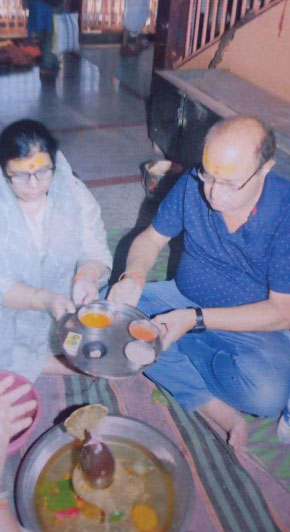
By the time he entered his teenage years, Dr. Sanjay had formed an unbreakable bond with his Guru. Weekends that were once spent playing cricket or indulging in harmless mischief were now dedicated to sitting at the feet of his mentor, absorbing ancient wisdom and learning life lessons that would stay with him forever.
His Guru, a man of deep spiritual insight and worldly wisdom, never forced teachings upon him. Instead, he used stories, parables, and thought-provoking conversations to ignite the flame of self-inquiry. He often told Dr. Sanjay, “True success is not in accumulating wealth or power, but in knowing who you are and using your strengths to uplift yourself and help others in the path of growth.”
Slowly but surely, Dr. Sanjay changed. The transformation was not overnight, nor was it dramatic. It was subtle, like the gradual transition of seasons. His friends noticed it in the way he spoke—with more thoughtfulness and less impulsiveness. His parents saw it in his growing sense of responsibility at home. His teachers observed a newfound focus in his approach to studies.
With newfound clarity, Dr. Sanjay faced an important crossroads in his life—choosing a career. His mischievous childhood and adventurous nature had made him a natural leader, someone who could command attention and influence people. His spiritual grounding had instilled in him patience, discipline, and the ability to work towards long-term goals.
While his academic record was not stellar, his confidence and ability to connect with people set him apart. He realized that a career in administration and management would allow him to use his leadership skills in a structured and impactful way.
What made Dr. Sanjay unique was his ability to merge the two seemingly opposite worlds—spirituality and professionalism. While his peers focused solely on climbing the corporate ladder, he maintained his connection with his Guru, often seeking his advice on ethical dilemmas and leadership challenges.
His Guru once told him, “A saintly leader is not the one who commands, but the one who serves. True leadership is not about control, but about empowerment.”
With each passing year, Dr. Sanjay’s purpose became clearer. His early years of mischief had shaped his confidence, his spiritual grounding had given him depth, and his professional experience had sharpened his skills. He was no longer just a curious boy or a restless teenager—he was a man with a mission.
While he had started his career in the private sector, he felt a pull towards something bigger—something that would allow him to make a larger impact. He began exploring opportunities where he could blend his leadership abilities with public service, a path that would eventually lead him to government administration.
"The best way to find yourself is to lose yourself in the service of others.” – Mahatma Gandhi
Phase 3 : The Government Calling – A Career of Service
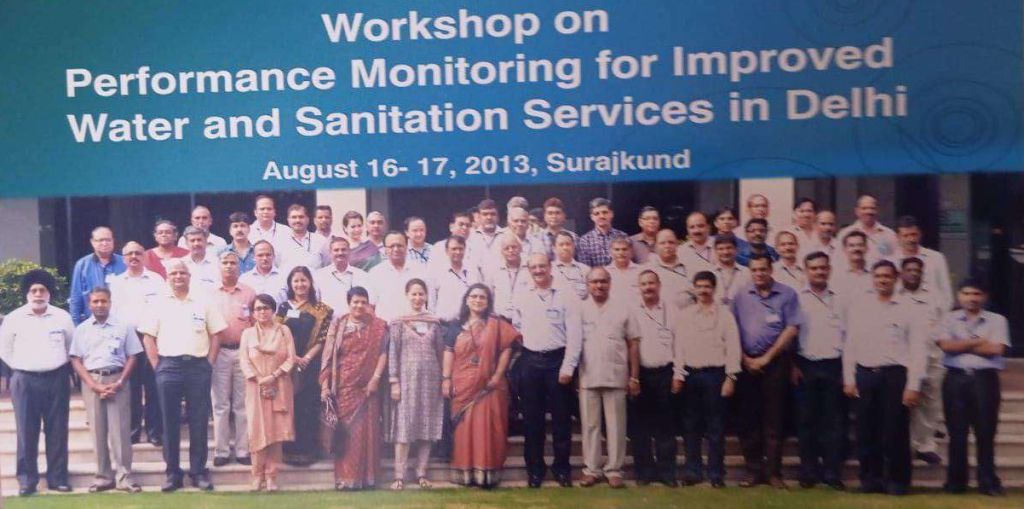
In 1984, after years of preparation, determination, and sacrifice, Dr. Sanjay Gupta received the news that would change the course of his life forever. He had cracked the prestigious Union Public Service Commission (UPSC) examination and secured a Class-B position in the Central Government under the Ministry of Defence. It was a moment of triumph, a culmination of all his hard work and the lessons he had learned from his Guru about discipline, focus, and service. For Dr. Sanjay, the UPSC was not just a test of knowledge but a test of character and willpower. It had been a long and gruelling journey, one that required immense patience, perseverance, and sacrifice. But once he passed, it was clear that this achievement marked not the end of a struggle, but the beginning of a new chapter—a chapter that would define his life in public service.
The Ministry of Defence: A Strong Foundation
Dr. Sanjay’s first assignment with the Ministry of Defence was nothing short of transformative. The work was demanding, requiring long hours and relentless attention to detail, but it provided him with invaluable insights into the inner workings of the government. He learned how public policy was shaped, how decisions were made, and most importantly, how to navigate the complexities of public administration with integrity.
The Call of Delhi Jal Board: A New Challenge
In 1990, Dr. Sanjay’s journey in public service took a significant turn. He was selected as an Administrative Officer/Zonal Revenue Officer at the Delhi Jal Board (DJB), a key utility provider for the national capital. DJB was responsible for managing water supply and sewage services across Delhi, serving millions of citizens, making it one of the most challenging and politically charged assignments one could undertake.
The Complexity of Water – A Political Subject
As Dr. Sanjay took on the mantle of responsibility, he quickly realized that his job was not just about numbers, policies, or regulations. It was about managing relationships—relationships with irate customers, influential bureaucrats, political leaders, and even unruly citizens. Each decision he made was scrutinized, and every action had the potential to affect thousands of people.
A Legacy of Service
In the years that followed, Dr. Sanjay’s career in public service continued to evolve. He took on more senior roles, but his core values of fairness, transparency, and dedication to service remained unchanged. His tenure at DJB was just the beginning of a remarkable journey that would span over 39 years in government service.
“Leadership is not about being in charge. It is about taking care of those in your charge.” – Simon Sinek
Phase 4 : Rising Through The Ranks
Dr. Sanjay Gupta’s journey through the Delhi Jal Board (DJB) was one of continuous evolution—a steady rise through the ranks marked by his unyielding commitment to service, leadership, and efficient governance. Over the years, he played an instrumental role in transforming DJB from a struggling utility provider to a more efficient, well-managed entity capable of meeting the complex needs of millions of citizens in Delhi. Dr. Sanjay’s path was not one of simple upward mobility; it was a journey characterized by growth, learning, and the development of an exceptional understanding of administration and management.

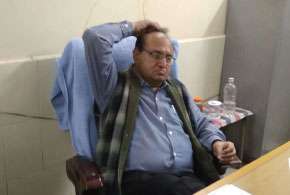
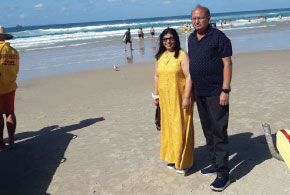
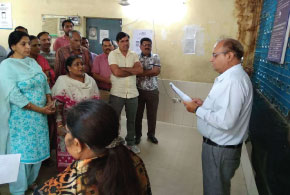
One of the most challenging yet rewarding roles Dr. Sanjay took on was that of Public Relations Officer (PRO). Public relations in a government utility like DJB was far from glamorous. The stakes were high, and the challenges immense. The water supply system was, and still is, a critical lifeline for the people of Delhi, and as such, it attracted constant scrutiny from the public, media, and political leaders.
In 1998, Dr. Sanjay transitioned to a pivotal role as Deputy Director (Revenue) at DJB. This position saw him managing the revenue generation and billing operations for over 500,000 water connections. Water, being a fundamental necessity, is often the subject of complex issues—payment delays, disputes over rates, and logistical challenges in providing services across such a vast and diverse city like Delhi.
Later as Joint Director (Revenue), he supervised and managed the revenue matters of nearly one third of all the consumers of Delhi. This was truly a challenging asssignment. It required all of his experience to be in place and would often test his faculties at work.
Dr. Sanjay’s role required not only a strong grasp of financial management but also an empathetic understanding of the challenges faced by citizens. He worked tirelessly to streamline the billing process, reduce errors, and ensure that customers received accurate bills in a timely manner. He implemented reforms that brought greater transparency to the revenue collection system, minimizing corruption and inefficiencies.
In the late 1990s and later, Sanjay was posted to work as Assistant Commissioner (Technical & Administration) and Secretary to CEO, where his scope of responsibility expanded dramatically. In this role, he was in charge of the administrative and technical affairs of DJB, overseeing over 6,000 officials who were responsible for the daily operations of Delhi’s vast water and sewage system. This was a challenging position, as it required not only technical expertise but also an exceptional ability to manage a large, diverse workforce.
He was assigned to coordinate the institutional part of a World Bank funded study which lasted for more than 4 years. There he had to liaise and interact with high level Indian and foreign dignitaries, experts and professionals.
His insight into the inner workings of DJB, combined with his deep understanding of both technical and administrative aspects of the organisation helped the agencies involved in the study to draft their reports that shaped the future of water supply and sewage management in Delhi.
During this period, he was additionally given the charge of Vigilance department as Deputy Director and then as Joint Director for around 6 years. There too he maintained his style of functioning, being fair in each case and at the same time dealing with all empathy that the cases would deserve.
He worked in this position for around 4 years also handling other positions and responsibilities with it. He was responsible for arranging and even imparting training to the employees of DJB. He was also responsible to arrange foreign trips of the officers involved including obtaining government clearances, arranging for visas, official passports and also arranging for boarding and lodging where required.
Over the years, Dr. Sanjay Gupta became an indispensable part of the Delhi Jal Board. His ability to navigate the complexities of bureaucracy, administration, and technical challenges made him a pillar of the organization. His deep expertise in management, governance, and public relations was the key to his success.
The main assignment given to him on promotion as Director was the Secretary of the Board. He was mainly instrumental in arranging Board meetings with the Board Members, the Hon’ble CM being its Chairperson and other 17 members, who were dignitaries and high ranking officers. Other assignments involved were to prepare and compile Agenda, make presentations and draft minutes of the meeting.
He undertook trainings of one day to a few weeks in related subjects from a few organizations in India and foreign institutions like PwC, UTCS, ISTM, NPC, DPC, ICWA, Kerala Water Works, ISHA Foundation, DJB (in-house Training Cell), Capacity Building International, TCS etc.
“Do not go where the path may lead, go instead where there is no path and leave a trail.” – Ralph Waldo Emerson
Phase 5 : Life after Retirement – A New Chapter
The notion that retirement marks the end of one’s professional journey is a myth that many people adhere to. For Dr. Sanjay Gupta’s retirement from the Delhi Jal Board (DJB) in the late 2020s was not an end, but rather the beginning of a new and exciting phase in his life. Though he had spent over 39 years serving the government, transforming DJB, and making an indelible impact on Delhi’s water distribution and revenue management system, Dr. Sanjay’s inner drive was far from exhausted. His career in public service had given him a wealth of experience, but his thirst for new challenges and knowledge was as potent as ever. Retirement for Dr. Sanjay wasn’t about slowing down—it was about evolving, exploring new horizons, and continuing to serve in different capacities.

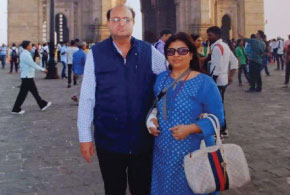
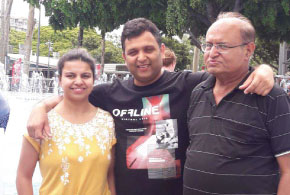

A Transition into the Private Sector
Shortly after retiring from DJB, Dr. Gupta set his sights on the private sector, where his extensive experience in management, administration, and governance proved invaluable. His first role in this new chapter was as an Insurance Consultant for Max General Insurance, one of India’s leading insurance providers. Here, he applied his expertise in operational efficiency and customer relations. His work as an Insurance Consultant provided him with a fresh set of challenges and insights.
A Passion for Learning and Academia
Despite his considerable achievements in the private sector, Dr. Gupta’s thirst for knowledge remained as strong as ever. He had always believed in the transformative power of education, not just for others but for himself as well. This passion led him to seek out a role in academia, where he could share his vast knowledge and experience with the next generation of leaders. In the years following his retirement, Dr. Sanjay became a Senior Consultant (Administration) with the Central Council of Research in Homoeopathy (CCRH), an organization under the Ministry of AYUSH.
An Esteemed Speaker and Thought Leader
Dr. Gupta’s expertise in administration, governance, and leadership soon led to him being invited to speak at numerous prestigious platforms. He delivered over 100 lectures on a wide range of topics, from administration and public governance to artificial intelligence and leadership in the digital age. His talks were known for their depth, clarity, and actionable insights, drawing on his extensive practical experience in both public service and private industry.
A Continued Legacy of Service and Impact
Even in retirement, Dr. Sanjay Gupta remained committed to his guiding principle of service. Whether working in the private sector, advising academic institutions, or mentoring the next generation of leaders, he continued to leave a profound impact on those around him. His journey was a testament to the idea that leadership isn’t confined to any one sector or stage of life. It is a mindset—a commitment to growth, learning, and service to others.
“Success is not about where you start, but how far you are willing to go.”
An Inspirational Journey
Dr. Sanjay Gupta’s life is a testament to resilience, dedication, and lifelong learning. From a mischievous childhood to an extraordinary career in administration, governance, and consultancy, his journey has been nothing short of inspiring. With over four decades of experience, he has not only shaped policies and managed large-scale operations but has also mentored countless individuals, guiding them towards success.
His story teaches us that challenges are stepping stones, not barriers. From handling some of the toughest zones in revenue collection to navigating high-pressure roles in public relations and administration, he has always faced adversity with unwavering determination. His ability to adapt, learn, and excel in multiple fields—from government service to the private sector, from AI to digital marketing—illustrates the power of continuous growth.
Beyond professional achievements, Dr. Gupta’s legacy lies in his commitment to education and personal development. His passion for mentoring, training, and public speaking has empowered many to unlock their potential. His belief in lifelong learning and his pursuit of knowledge across diverse disciplines serve as an inspiration for those who aspire to grow beyond conventional boundaries.
Dr. Gupta’s journey reminds us that true success is not just measured by titles and accolades but by the impact one leaves on others. His life embodies the spirit of perseverance, innovation, and self-improvement. He has shown that with the right mindset, every obstacle can be transformed into an opportunity, and every individual has the potential to create a meaningful legacy.